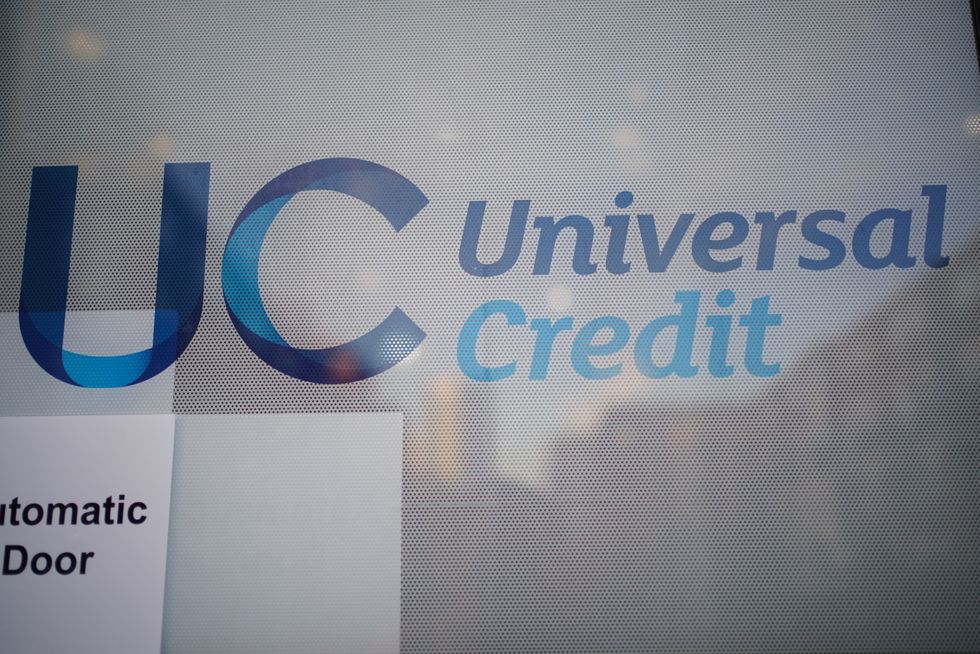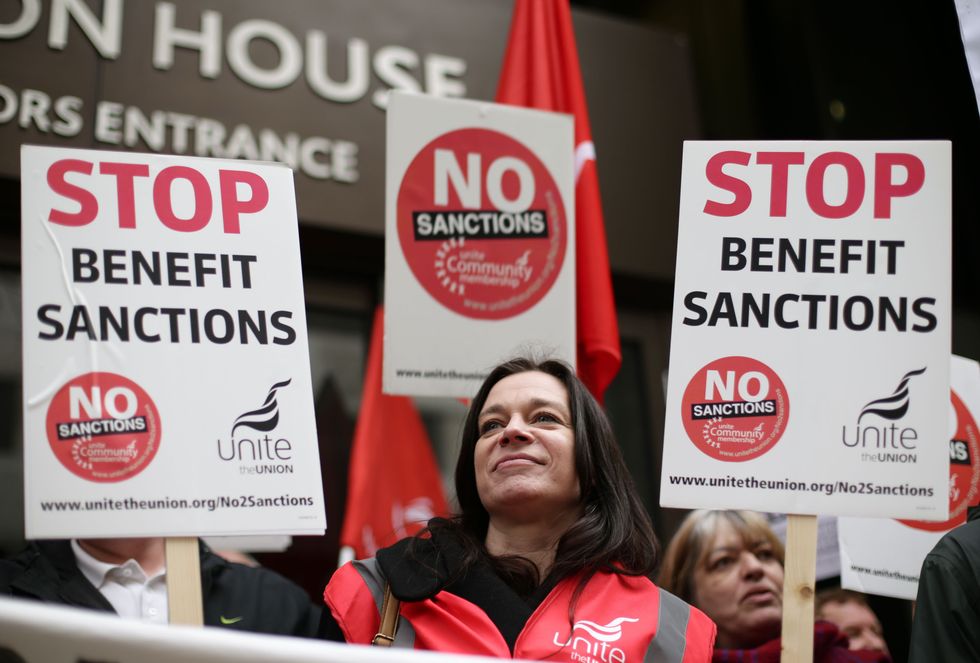Universal Credit payments at risk for thousands under Rachel Reeves's DWP reforms - will you be impacted?

Piers Pottinger hits out at 'preposterous' benefits system as sanctions fall under Labour - 'Soft touch!' |
GB NEWS

Young people who refuse work or training could lose access to DWP benefits, including Universal Credit
Don't Miss
Most Read
Latest
Universal Credit claimants could lose access to their benefit payments under Department for Work and Pensions (DWP) reforms, which are set to be announced by Chancellor Rachel Reeves.
The Chancellor will confirm that young people who have been out of a job or education for 18 months will be offered a guaranteed paid work placement during her speech at today's Labour Party conference.
Those who refuse or fail to take advantage of this offer will lose their benefit entitlement, including Universal Credit, as Labour pledge to create a "contribution" based society.
During her speech, Ms Reeves will outline plans for "nothing less than the abolition of long-term youth unemployment" ahead of the Autumn Budget on November 26, 2025.

The Chancellor is preparing to unveil major DWP reforms
|GETTY / PA
This latest slate of reforms to the DWP builds on top of Labour's "youth guarantee", which promised access to job training, education opportunities or apprenticeships for every 18 to 21 year old in England.
As part of this scheme, every young Britons who has been on Universal Credit for 18 months without "earning or learning" will be offered a guaranteed paid work placement.
Based on the latest Office for National Statistics (ONS) figures, around one-in-eight individuals aged 16 to 24 are not currently in employment, training or education; which is the equivalent of 948,000 people.
Last year, the number of young people out of work skyrocketed to a 11-year high of 987,000 as concerns over Britain's ballooning benefits bill grow.
 Universal Credit is the primary benefit administered by the DWP | PA
Universal Credit is the primary benefit administered by the DWP | PAMs Reeves is facing pressure to cut welfare expenditure after the Government's previous attempt to tighten the eligibility criteria for disability benefits was thwarted by backbench Labour MPs.
The Chancellor is expected to announce: "I will never be satisfied while too many people's potential is wasted, frozen out of employment, education, or training. There's no defending it.
"It's bad for business, bad for taxpayers, bad for our economy, and it scars people's prospects throughout their lives. Just as the last Labour Government, with its new deal for young people, abolished long-term youth unemployment I can commit this Government to nothing less than the abolition of long-term youth unemployment."
The announcement of a "youth guarantee" for employment and training has been praised by leaders of the business community, including Tina McKenzie, the Federation of Small Businesses' chair.
She explained: "Reprioritising spending from employment programmes which aren't working to this type of scheme is exactly the way to get much-needed bang for taxpayer cash."
"Key to getting the details right is making sure there is a backstop offer to those who are now over-25, particularly those with health challenges; that young people out of work for health reasons are not excluded through misguided double funding rules; and that small businesses are enabled to play a full role in the delivery of the scheme."
Under looming changes, PIP eligibility will tighten significantly from November 2026, with new claimants required to score at least four points in one daily living assessment category.
As well as this, new Universal Credit claimants will get a reduced health element of £50 per week, down from the current £97 from April 2026.
LATEST DEVELOPMENTS:

There has been backlash to recent changes to benefit sanction rules
| PATom Barrett, a debt and benefits Expert at caba, issued advice to those who are concerned about potentially losing their benefit entitlement.
She shared: "For many, changes to health-related Universal Credit or stricter eligibility for disability support could mean making impossible choices between paying rent, buying food, heating their home, or falling deeper into debt.
"Efforts to improve employment outcomes are welcome, but they must be accompanied by strong financial safeguards since short-term funding may not be enough to prevent long-lasting hardship.
"During this time, it’s important to check what benefits you may be entitled to and benefits advisers can help you with this. It may also be worth seeking independent financial advice to help you make the most of your money, and if you're managing debt, prioritising the repayment of high-interest debts may be the right approach."
More From GB News










